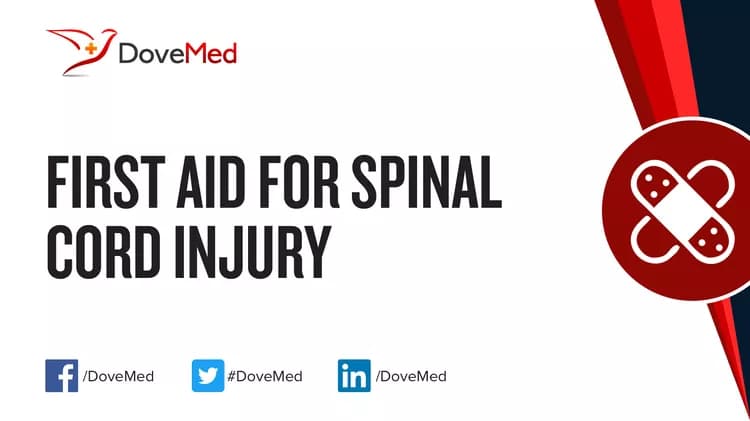What is Spinal Cord Injury?
- A Spinal Cord Injury (SCI) is a significant injury requiring urgent medical attention. Depending on the severity of the injury, it can result in temporary paralysis or even irreversible complications
- The spinal cord begins at the base of the neck and passes through the back. It forms a part of the central nervous system. Spinal Injuries are often seen in sports athletes, older adults, and individuals involved in automobile accidents
What are the Causes of Spinal Cord Injury?
Spinal Cord Injuries may be caused by a variety of factors including:
- Injuries during sports activities including high-speed motor racing events
- Fall injuries, especially sustained by falling from heights
- Motor vehicle accidents
- Occupational hazard related, while working with mechanical equipment or tools
- Heavy objects hitting or falling on the back/body
- Any force causing a violet twisting of one half of the body
- House or building collapse
- Street fights, gunshot injuries, and domestic violence; physical abuse
- High-voltage electric shocks
What are the Signs and Symptoms of Spinal Cord Injury?
The signs and symptoms of a Spinal Cord Injury depend upon the severity of the injury. It can vary from one individual to another and may include:
- Moderate to severe pain present in the neck or back
- Bruising, bleeding from the injury spot
- The individual is unable to move or get-up, or walk
- Bone fracture: The bone covering the spinal cord, called the vertebrae, and associated ribs may be broken
- Spinal Cord Injury can result in loss of control of arms and legs, loss of bowel/bladder control, low response level
- Sensory disturbances (tingling and numbness)
- Visible physical deformity; unusually twisted body or head position
- Shock and loss of consciousness
How is First Aid administered for Spinal Cord Injury?
First Aid tips for Spinal Cord Injury:
- Call 911 (or your local emergency number), if there is a medical emergency due to the accident/trauma, or if severe symptoms are noted
- DO NOT move the individual if you suspect a head and neck, back, or Spinal Cord Injury. Also, any further movement of the head, neck, or body should be completely avoided
- AVOID moving the individual to check for other injuries, or to see in which part of the back has the injury taken place
- In case the individual is vomiting, tilt their body to the side, such that the head, neck, and back are aligned and along a line. Take the support of bystanders for assistance; DO NOT roll the individual onto their side alone
- If necessary, support using towels, cushions, or hold (using your hands) the head and neck to prevent it from moving till the first responders (professionals) arrive at the location
- DO NOT ask the individual to get up and walk or help the individual get up slowly, if an injury to the back or spine is evident
- DO NOT try to remove any helmet or other safety gear the individual is wearing
- If no breathing is present, administer CPR (if you are trained to do so)
- If there is bleeding from other wounds, then take suitable steps (such as applying direct pressure for severe bleeding) to arrest the bleeding
Who should administer First Aid for Spinal Cord Injury?
Any bystander can administer first aid; however, suitable emergency medical assistance for a definitive management of any Spinal Cord Injury.
What is the Prognosis of Spinal Cord Injury?
The prognosis of Spinal Cord Injury is based on the severity of the injury. Mild spinal cord injuries have better prognosis than moderate to severe injuries.
How can Spinal Cord Injury be Prevented?
A few helpful tips to prevent Spinal Cord Injuries:
- Use appropriate safety equipment, especially while participating in sports. Also, learn the correct sports techniques
- Wear seat-belt while driving
- Fall-proof the home; address slippery smooth surfaces that pose risk of falls
- Close supervision of children during their outdoor activities
- Do not drive under the influence of alcohol
What are certain Crucial Steps to be followed?
- Call 911 (or your local emergency number) immediately for assistance
- DO NOT move the individual around, unless there is a clear and imminent danger from the accident (such as a blazing fire or falling debris, etc.)
- DO NOT attempt to rise the affected individual by holding their head and shoulders
Related Articles
Test Your Knowledge
Asked by users
Related Centers
Related Specialties
Related Physicians
Related Procedures
Related Resources
Join DoveHubs
and connect with fellow professionals


0 Comments
Please log in to post a comment.